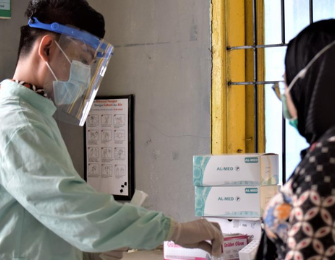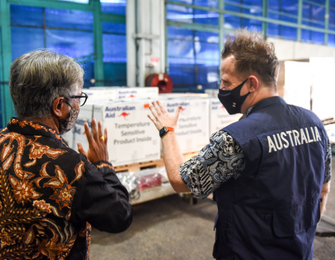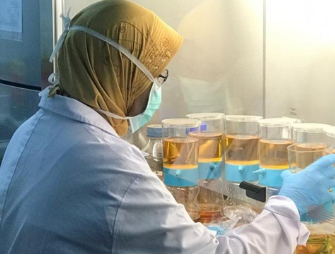Zoonotic (transmissible from animals to humans) and transboundary animal diseases are either endemic or cause frequent outbreaks in many countries of the Indo-Pacific. The emergence of bird flu and Severe Acute Respiratory Syndrome (SARS) in 2003, the 2009 H1N1 influenza pandemic and the Middle Eastern respiratory syndrome coronavirus (MERS CoV) in 2012 have highlighted the need for stronger laboratories and surveillance systems to address health security threats, including zoonoses, in the Indo-Pacific.
In Myanmar and Indonesia, JEE and PVS assessments have noted weaknesses in regional laboratory capacity, biosafety and biosecurity, information sharing and support networks for emerging and re-emerging infectious diseases. While good progress has been made in the development of laboratories through training, infrastructure and new standards, more support is needed to strengthen laboratories and improve biosafety and biosecurity.
PARTNERSHIP
CSIRO’s Australian Centre for Disease Preparedness (ACDP) has longstanding experience and expertise in detecting animal health diseases in the Indo-Pacific. This program will enable AAHL to share expertise and resources through twinning arrangements with laboratories in Indonesia and Myanmar.
The program will include a series of training workshops with short courses on biosafety and biosecurity at AACDP in Geelong, as well as opportunities for placements for up to three months at ACDP or other public health laboratories in Australia.
Training and placements will be offered to microbiologists, veterinarians and infectious disease specialists from Indonesia and Myanmar.
There will be some support for ASEAN-designated regional animal health reference laboratories in Thailand and Vietnam where possible as the project develops.
In Indonesia and Myanmar, laboratory staff will have skills and knowledge to maintain appropriate safety standards and practices to address health security threats, such as avian influenza, anthrax and rabies, and to address new problems such as African Swine Fever.
Stronger laboratories and surveillance systems will improve the detection and management of disease in Myanmar and Indonesia.
Australia’s COVID-19 Response
The Australian Government is deeply concerned about the impact of COVID-19 in Myanmar. Australia's existing humanitarian and development programs continue to focus on COVID-19 prevention and mitigation including:
- providing oxygen related equipment;
- building sanitation infrastructure and isolation wards in internally displaced persons camps;
- distributing personal protective equipment (PPE) to affected communities;
- training and community engagement in disease outbreak surveillance and response;
- capacity building in field epidemiology; and
- strengthening laboratory and emergency health operations.
For more information visit Australia’s development assistance to Myanmar.




